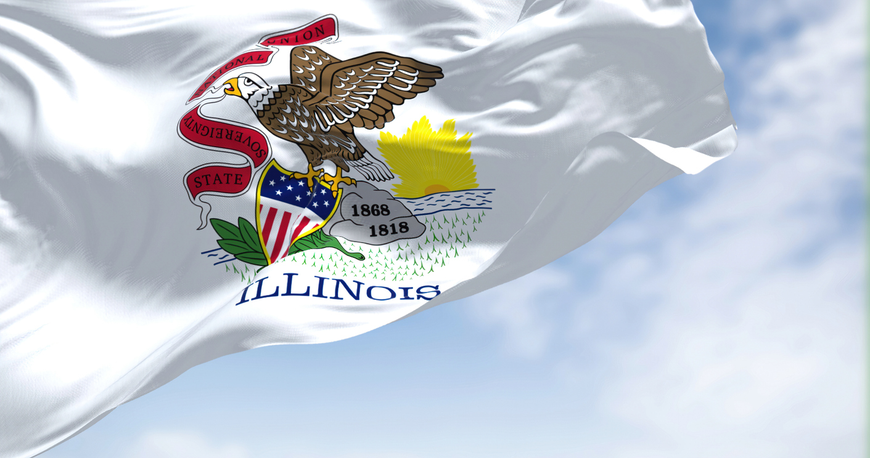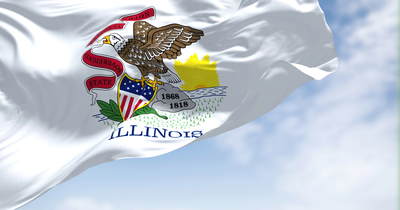

Illinois is the latest state to pursue online poker and casino legalization in a year already packed with igaming expansion efforts.
Two bills, SB 1963 and HB 3080, have been introduced in the Illinois Legislature to legalize igaming. They are sponsored by State Senator Cristina Castro and Rep. Edgar González, Jr.
While both bills face a long legislative process, they mark the first step toward Illinois online poker becoming a reality. If the proposed legislation passes, the Land of Lincoln would become the eighth state with legal online casinos and the ninth to legalize online poker.
If approved, Illinois would be a major player in online poker, ranking as the second-largest state by population (nearly 13 million) after Pennsylvania.
Both bills have been dubbed the Internet Gaming Act, which proposes a regulated market for online casinos and poker, taxed at 25% of adjusted gross gaming revenue. Both bills allow an unspecified number of qualified licensees—including the state’s land-based casinos and racetracks—to operate up to three online skins for casino and poker. An internet gaming license would cost $250,000, with renewals set at $100,000.
Notably, both the bills include language that could allow Illinois to join a multi-state gaming compact, such as the existing Multi-State Internet Gaming Agreement (MSIGA), which currently has five members, with Pennsylvania expected to join as the sixth.
“The [Illinois Gaming] Board may enter into agreements with other jurisdictions to facilitate, administer, and regulate multijurisdictional approved Internet games, including, but not limited to, poker,” the SB 1963 bill states.
If enacted into law, the Internet Gaming Act would require the IGB to “adopt emergency rules within 90 days.”
Both bills had their first reading on February 6, the same day they were filed, and were swiftly sent to the committee.
Another Shot at Online Gaming — Will This Time Be Different?
Illinois has had legal online sports betting since 2019, but efforts to expand into igaming have repeatedly failed. While multiple bills have been introduced in the previous years, none have passed. The state has long been considered a strong candidate for regulated online poker, and 2025 could finally be the year.
Previous igaming bills were introduced in 2021 and 2023, with some carrying over into 2024 by the same lawmakers. However, they differed on tax rates for online casinos, proposing 12% or 15%. The latest bill sets a 25% tax rate, aligning it more closely with Michigan’s 20%–28% range.
Although the bill faces a long road ahead, this latest push by Illinois lawmakers stands a better chance of success than past efforts.
But by far the biggest hurdle to legalizing online poker and casinos in Illinois is the video gaming terminal (VGT) industry. Previous bills have stalled largely due to opposition from VGT operators. Illinois has more VGTs in non-casino locations than any other US state, with 47,047 machines recorded in 2023, according to the American Gaming Association (AGA).
VGTs account for a significant share of gaming revenue. In 2023, they generated $814 million—over 40% of the state’s $2 billion in total gaming tax revenue. Only the state lottery contributed more, at $872 million (44%).
While VGTs continue to grow, the market is under pressure, and online poker and casino gaming could further impact their revenue.
A 2022 Morgan Stanley report projected that if Illinois legalized online gaming, the state would generate $868 million in igaming revenue in 2024. That figure is expected to rise to $1.3 billion in 2025, $1.5 billion in 2026, $1.6 billion in 2027, and $1.7 billion in 2028.
Illinois Joins the iGaming Race in 2025
Illinois is now the ninth state to introduce online poker and casino legislation this year, joining Maryland, Virginia, Indiana, Wyoming, Massachusetts, New York, Hawaii, and New Hampshire. Many of these bills include provisions for joining multi-state agreements like MSIGA.
However, only five bills remain active, while others have stalled. Virginia’s igaming bill has been delayed for further study, with plans to reintroduce it next year, while efforts in Wyoming and New Hampshire have hit roadblocks.
If Illinois online poker goes live, major operators like PokerStars, BetMGM, WSOP, and BetRivers would likely enter the market. All four already have access to the state through their online sports betting operations.
With the option to join MSIGA, Illinois would become the second-largest member of the compact. This would make it a key market for operators, strengthening their player pools and expanding shared liquidity across participating states.

